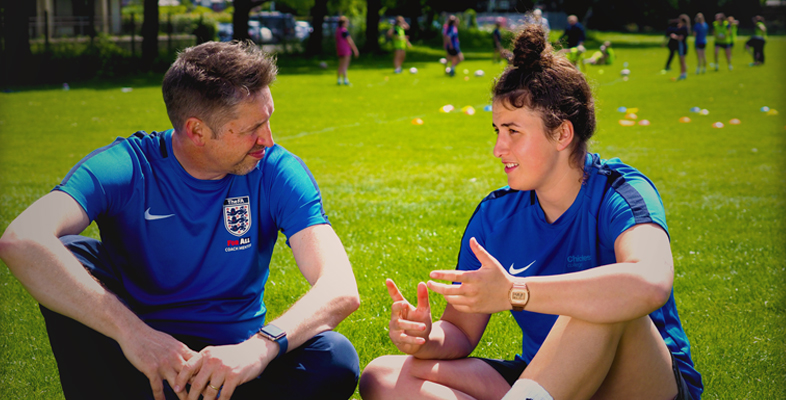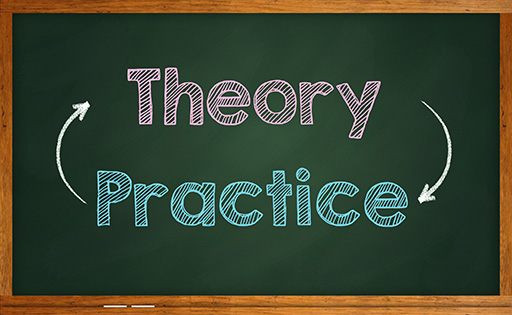3 Theories to explain learning
What is the nature of learning? Traditionally, coaching has drawn on cognitive and behavioural theories in which a coach is viewed like a cognitive sponge soaking up knowledge, skills and ideas in an objective, non-personal way. A term that has been used is learning through ‘acquisition’ (Sfard, 1998).
Elements of these theories are useful. However, practice-based learning is focused more on participation rather than acquisition.
Activity 3 Exploring social constructivist theories of learning
Using a search engine, look for text or video explanations of a ‘Social Constructivist Theory of Learning’ (use these search terms). Choose two or three of your search results and spend about ten minutes researching these links to ‘get a feel’ for what this theory is about.
If you find material that mentions terms such as ‘construction’, ‘collaboration’, ‘making sense’, ‘culture’, ‘language’ or ‘social’ you will be on the right lines. Think about how your search results relate to coaches and your own learning.
Discussion
Social constructivist theories argue that people learn by constructing knowledge through their experiences. This often involves actively participating in making sense of information to construct their knowledge about:
- the environment around them
- their relationships with people
- their own sense of self-identity
- their values and ideas which influence their behaviour and actions.
This is a continuous process informed by reflecting on, layering and interweaving new experiences and information onto their existing thoughts and knowledge, potentially transforming their behaviour. As a coach developer you should understand that social constructivist theories attempt to explain learning as a predominantly active, social and collaborative process.
There are many explanations of learning which fall under the social constructivist term. These are all concerned with how learners build their own mental structures through interaction with their environment, i.e. learning does not occur in a vacuum (Merriam and Caffarella, 1999).
In your work as a coach developer you might recognise that coaches ‘cherry pick’ aspects of their learning to apply to their practice. Since each coach is different, the same learning opportunity is likely to have a different impact on individual coaches (Stodter and Cushion, 2017) due to influences such as:
- the organisational culture within which they coach
- established social norms and conventions
- hierarchy, status and power
- gender and ethnicity
- access to educational opportunities
- personal identity and
- the impressions people try to portray in order to ‘fit in’.
Coach developers need to appreciate all of these broad social influences on coach learning.

